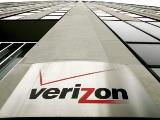
Anyone who thinks the phone company will do the right thing and 'pass on savings to the consumer' just got a nice screw you from Verizon.
Apparently, the government stopped requiring Verizon charge a universal fee to help cover the cost of phone service coverage in rural areas on DSL lines. From $1.20 to $2.80 a month. Your bill should drop by that much now, right?
Not so much. The unvarnished word directly from Verizon:
"Effective August 26, Verizon will charge a Supplier Surcharge for all DSL customers. The surcharge helps offset costs we incur from our network supplier. The Supplier Surcharge will be $1.20/month for 768Kbps service customers and $2.70/month for higher DSL speeds.
Verizon Online will cease charging an FUSF recovery fee, beginning August 14, 2006. The impact of the elimination of the FUSF fee is for DSL customers up to 768Kbps, fee eliminated is $1.25.month; for DSL customers of up to 1.5Mbps and 3Mbps services, the fee eliminated is $2.83/month. On balance your total bill will remain about the same as it has been or slightly lower."
What happened here? They instituted some made up cost they have been 'absorbing for some time' to match the drop in price. They also, of course, neglected to detail what this extra cost was (other than: we're losing money in our landline phone business.. doh.. you and the rest of the world).
I've got no beef with Verizon making money. Really. But when they could pass on the savings of a government tax that is no more, and instead just tack it onto your bill as some random fee to keep the money you've been 'trained' to pay out already, I have to ask: what else are they tacking on and charging for that has no value other than to add pure profit?
These guys operate as near monopolies. I'm no fan of government regulations (being a libertarian hippie and all), but some guys just need watching.
Verizon is one of these guys.
They've effectively evoked a rate hike of hundreds of millions of dollars on their users, without a single regulator getting a look at it (or, it seems, caring much about it).
This is from today's Wall Street Journal (and even they seem to be looking at it a big cockeyed):
Verizon Adds New DSL Surcharge
By AMY SCHATZ and DIONNE SEARCEY
August 21, 2006 4:09 p.m.
For Verizon Communications Inc.'s Internet customers, monthly bills won't be dropping after all.
Last year, the government changed the rules so DSL subscribers would no longer have to pay into a federal fund which subsidizes phone services in rural areas and for low-income consumers. That promised to shave a dollar or two off a typical DSL Internet bill -- $1.25 a month for Verizon's slower DSL service and $2.834 a month for its faster service.
But Verizon recently emailed subscribers, announcing that it will drop the universal service surcharge as of Aug. 14 and impose a new "supplier surcharge" beginning August 26. The new fee -- $1.20 a month for slower service customers and $2.70 a month for faster ones -- is almost exactly what consumers would have saved with the government's change. Essentially customers' bills won't fall at all.
It appears that Verizon is essentially pocketing the money that consumers would have gotten back, although the company disputes that notion. It says it will eventually impose the fee on all of its six million or so DSL customers because of increased costs of providing stand-alone Internet service, which is purchased at a premium by consumers who don't subscribe to its phone service.
"We have a cost that we have been absorbing for a long time. We're not going to absorb it anymore," said Bobbi Henson, a Verizon spokeswoman. The new charge will not apply to subscribers with annual Internet contracts until those agreements expire.
It's not clear how many other phone companies will use the change to impose new charges on consumers.
Last year, the Federal Communications Commission changed rules that govern DSL Internet lines and dropped the obligation to pay into the $7.3-billion Universal Service Fund, which subsidizes phone services in rural areas and for low-income consumers. That change takes effect this month for all DSL Internet providers.









